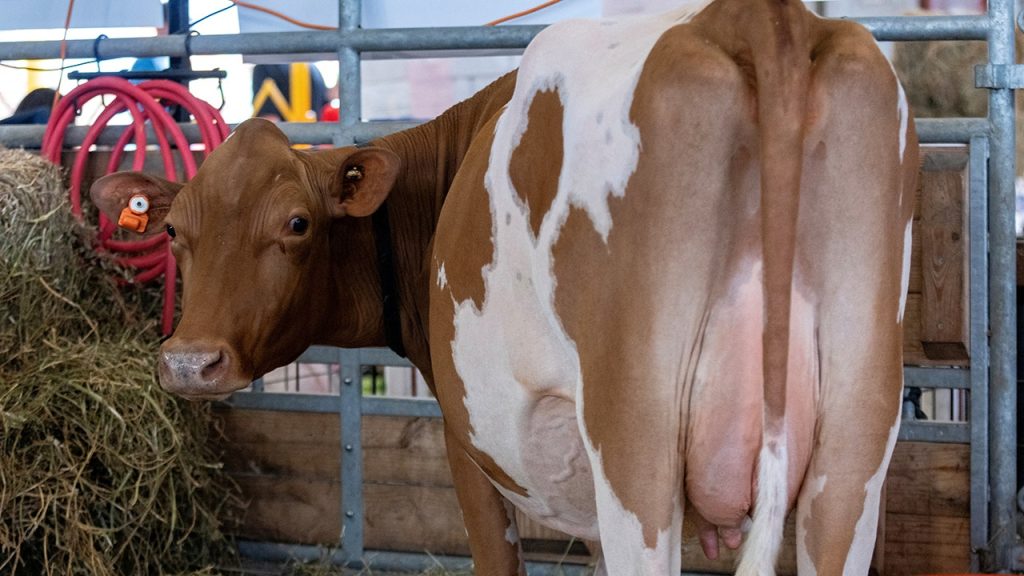State fairs across the country are facing challenges this year as nearly 200 cattle herds have been infected with avian flu for the first time. Due to safety concerns, some fairs are choosing to use faux bovines instead of real cows in their demonstrations. For example, the Minnesota State Fair is using a cow substitute named Olympia for their milking demonstration, while the Michigan State Fair is using fiberglass cows named Milkshake and Buttercup. Additionally, the Iowa State Fair has canceled hands-on cow attractions, and many states are requiring animals to test negative for the virus before being allowed in.
Thirteen farmworkers have been infected with the avian flu, although experts worry that the number may be under-reported. Fortunately, all the workers have recovered. Jennifer and Bethany Droessler from Wisconsin decided to keep a lactating cow at home this year as a precaution. The U.S. Centers for Disease Control and Prevention has stated that the virus is not a high risk for the public outside of livestock settings, but they advise fairgoers to be cautious about eating, drinking, or touching anything near animals while at the fair.
The Minnesota State Fair has taken additional precautions by providing gloves and face masks for people working with livestock, and pregnant cows are not allowed in the fair’s birthing center. Other fairs are closely monitoring the situation and taking similar safety measures to protect both animals and fairgoers. It is hoped that by implementing these precautions, the spread of the avian flu can be minimized and future fairs can resume with real cows in their demonstrations.
Despite the challenges brought on by the avian flu, fair organizers are hopeful that next year’s events will be able to feature real cows once again. By taking proactive measures and closely monitoring the situation, they aim to ensure the safety and well-being of both livestock and attendees. While some attractions may have been canceled or modified, the spirit of state fairs and the tradition of showcasing cattle remains strong.
In conclusion, the avian flu outbreak has presented a unique set of challenges for state fairs across the country this year. With nearly 200 cattle herds infected, fair organizers have had to get creative in order to continue their traditions while prioritizing safety. By using faux bovines in demonstrations, providing personal protective equipment, and closely monitoring the situation, fairs are working to mitigate the spread of the virus and ensure the well-being of all involved. While this year’s events may look different, the spirit of state fairs and the resilience of the agricultural community remain unchanged.


